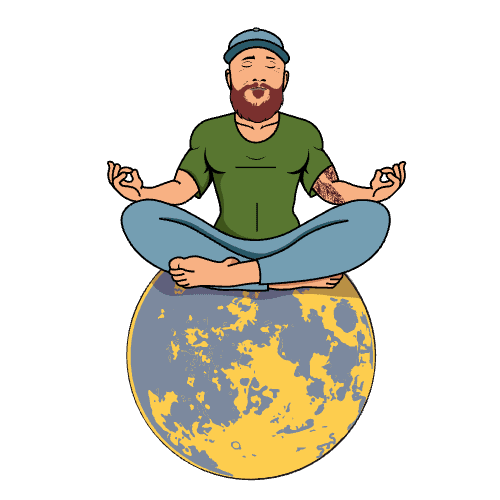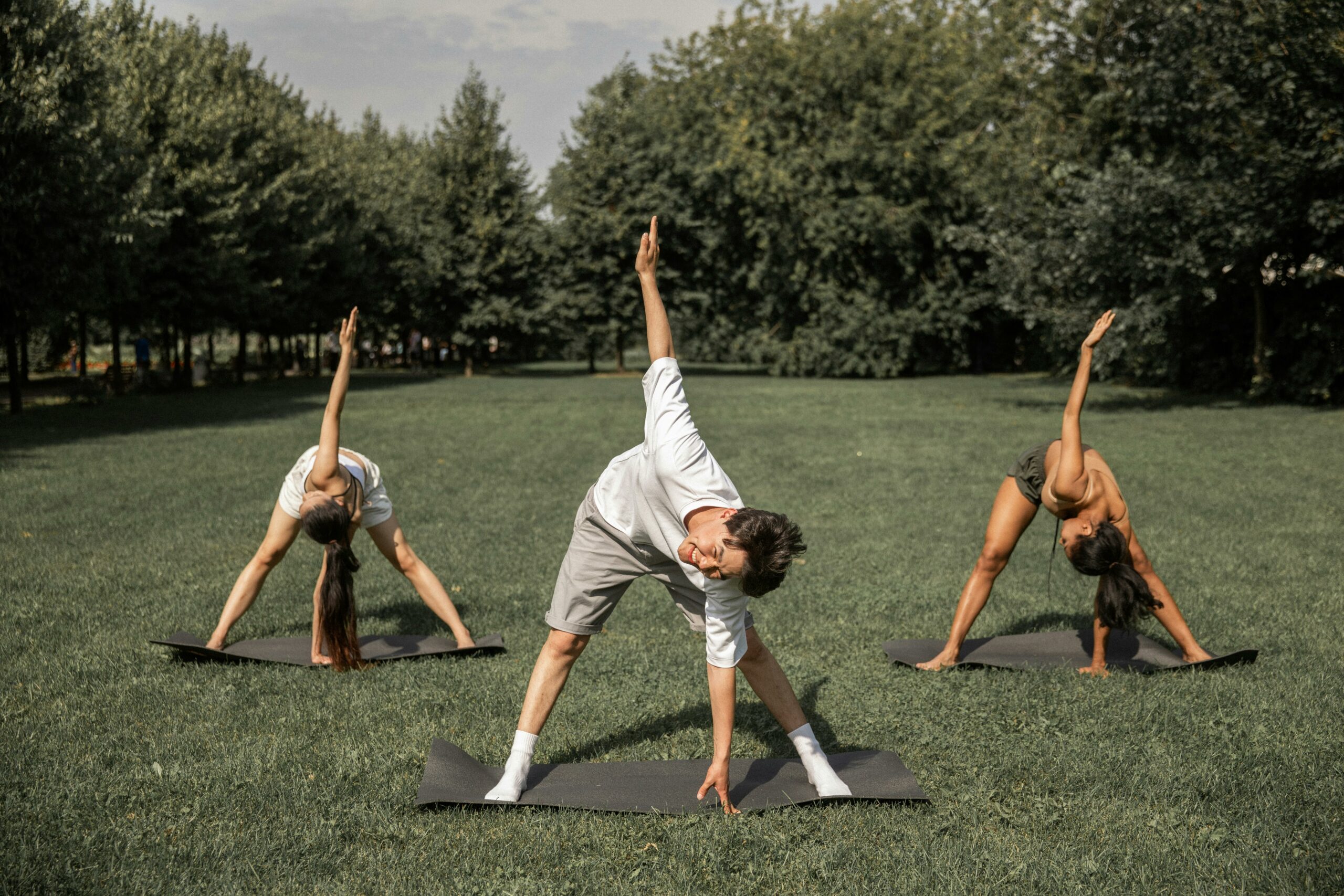The five powerhouse practices we’re about to explore are sunshine exposure, breathwork, fasting, grounding, and sleep. So, get your adventure hat on, and prepare to relieve yourself of all excuses that vibrant health costs thousands in supplements and gym equipment.

1. Harness the Power of the Sun: A Free and Potent Health Booster
Sunlight has been touted as one of the most robust, cost-free health-promoting practices, its therapeutic influence backed by a multitude of scientific studies. A crucial element for our survival, sunlight serves multiple roles beyond simply illuminating our world.
Sunlight exposure is instrumental in the body’s production of vitamin D, a nutrient vital for overall health. In a study conducted by the Harvard School of Public Health, evidence suggested that sufficient levels of vitamin D could reduce the risk of heart disease, certain cancers, and even depression.
It’s also worth noting that sunlight is an effective agent against high blood pressure. A 2014 study published by the Universities of Southampton and Edinburgh indicated that sunlight exposure can stimulate the production of nitric oxide in the skin, reducing blood pressure levels and subsequently decreasing the risk of heart disease and stroke.
Sunlight and Our Circadian Rhythm
Furthermore, the power of sunlight to help regulate our circadian rhythm—a biological process controlling our sleep-wake cycle—is unparalleled. Exposure to natural morning light has been associated with better sleep quality and mood improvement, as documented by this study.
On the mental health front, researchers found in another study that “among depressed participants, a dose-response relationship was found between sunlight exposure and cognitive function, with lower levels of sunlight associated with impaired cognitive status”. After accounting for the combined impact of season and sunlight on cognitive function, a notable association persisted between each of these factors and cognitive impairment.
While the benefits of sunlight are compelling, it is essential to balance these with the risks of overexposure, such as skin cancer. I am about the most fair-skinned person I have ever come across with my naturally red hair and freckles, so I have to be pretty careful in the sun. I believe my lack of sun resistance is primarily due to my mom slathering sunscreen on me since I was a baby and never giving me a chance to develop tolerance to the sun (I still love you, Mom), which is why in my late twenties I am just now beginning to build my tolerance. It is never too late to build a sun tolerance and reap benefits from its healing power, but I definitely recommend practicing with caution and listening to your body when it is time to get in the shade.
Sunlight and light exposure, in general, is a very controversial and complex topic that will require further breakdown in another article. The moral of the story is that capitalizing on exposing your skin to the sun every day is one of the most powerful, free tools to enhance the longevity and vitality of your life.
2. Breathwork Training: The Art of Conscious Breathing
Breathwork exercises have emerged as an influential practice in the field of holistic wellness. They constitute a potent, health-boosting regimen that doesn’t cost a dime, yet yields an extraordinary range of benefits. The power of conscious breathing in enhancing physical and mental health has roots in ancient traditions, and it has now captured the attention of contemporary science, substantiating its beneficial effects through a wealth of research.
One striking feature of breathwork is its ability to reduce stress and anxiety. A 2018 study demonstrated the pivotal role of controlled breathing in activating the body’s relaxation response, thereby diminishing the physiological symptoms of stress. The study concluded that their hypothesis considers “two different mechanisms for explaining psychophysiological changes induced by voluntary control of slow breathing: one is related to a voluntary regulation of internal bodily states (enteroception), the other is associated to the role of mechanoceptors within the nasal vault in translating slow breathing in the modulation of olfactory bulb activity, which in turn tunes the activity of the entire cortical mantle”.

Breathwork also bolsters cardiovascular health. Research from the Medical Science Monitor showed that slow, controlled breathing exercises can lower blood pressure and heart rate. Additionally, a study from the Journal of Human Hypertension revealed that practicing breathwork regularly significantly reduced systolic and diastolic blood pressure.
On the cognitive front, breathwork exercises have been linked to improved focus and mental clarity. A study in the Journal of Clinical Psychology found that mindfulness-based breathing exercises improved cognitive flexibility and decreased negative emotional responses.
Furthermore, breathwork’s potential to enhance overall well-being is highlighted in a review published in Frontiers in Psychology, which details the positive impact of breathwork on various aspects of physical and mental health, including emotion regulation, immune response, and pain management.
In conclusion, breathwork exercises are a powerful, accessible, and free tool that can significantly boost your health and well-being. As ongoing research continues to explore the depths of its benefits, incorporating a breathwork routine into your daily life is an investment in wellness that costs nothing but a few minutes of your time.
Want to try a quick 10-minute breathwork session? Check out the video below of my fellow CHEK Holistic Health Coach colleague Troy Casey and learn one of his techniques that will help calm your nerves on demand. Also, it’s worth checking out Troy’s Breath Is Life breathwork course if you seek additional instruction on enhancing your breathwork practice.

3. Fasting
In a society driven by consumerism, there exists a revolutionary yet ancient wellness practice that is completely free – fasting. It may seem counterintuitive, but the act of voluntarily abstaining from food for specified periods can significantly enhance your overall health.
Fasting has shown tremendous potential in promoting weight loss, improving brain function, and extending longevity. This is achieved by driving biological processes like autophagy, the body’s recycling system, wherein cells degrade and recycle components, effectively clearing out damaged cells.
Emerging studies link fasting to weight management, largely attributed to hormonal changes, particularly insulin. Fasting can improve insulin sensitivity, promoting the body’s ability to utilize glucose more efficiently and subsequently leading to weight loss. For those struggling with obesity, fasting may be an underutilized yet potent tool.
The benefits extend beyond just physical health. Fasting can boost cognitive performance, particularly in memory and mental clarity. This is associated with increased levels of brain-derived neurotrophic factor (BDNF), a protein that stimulates brain cell growth and resilience, during fasting.
It’s also suggested that fasting could promote longevity. This is linked to the fact that fasting mitigates several risk factors of chronic diseases and also activates pathways that enhance cell resistance to stress and disease, thereby potentially extending lifespan.
Undeniably, fasting carries immense potential as a health-boosting practice. As with any major lifestyle change, it’s important to consult your trusted holistic health coach before you begin, especially for those with underlying health conditions. There is no ‘one size fits all’ fasting approach, so it’s crucial to find a method that best suits your lifestyle and health status.
As the health world discovers the power of this age-old practice, you can harness fasting’s benefits to invigorate your health journey today, for absolutely no charge.
4. Grounding (or Earthing): Get Down and Dirty
Grounding, also known as Earthing, is gaining attention as a free, potent health booster. Harnessing the healing power of the Earth, grounding reconnects our bodies to the planet’s natural electrical charge, an element from which many of us are increasingly isolated.
Various research studies suggest that regular grounding practices can contribute to significant health improvements. The most noteworthy potential benefits include improved sleep quality, reduced inflammation, and enhanced wound healing.
In a 2004 study published in the Journal of Alternative and Complementary Medicine, researchers found that grounding during sleep improved sleep quality, reduced pain, and decreased stress levels in test subjects.
One of the most pronounced potential benefits of grounding is its impact on inflammation. A 2015 review in the Journal of Inflammation Research illustrated that grounding may neutralize free radicals, reducing chronic inflammation, one of the major contributors to many chronic diseases.

Additionally, the Journal of Cosmetics, Dermatological Sciences and Applications published a case series in 2014 demonstrating that even one hour of grounding can enhance blood flow regulation all the way up to the face, implying potential benefits for skin tissue repair, improved facial appearance, and possibly overall health.
As we dive deeper into the age of technology, grounding serves as a free, simple, yet potent tool to reconnect us with the Earth’s healing power, providing numerous health benefits that are only beginning to be scientifically explored. With increasing research supporting its efficacy, grounding might just be the accessible health boost we’ve been overlooking.
Grounding Resources:
Barefoot Grounding/Earthing – Hippie Bologna or Cure-All?
Earth Runners Grounding Sandals (use code KYLETOTHEMOON for 10% off)
Check out the video below to see Clint Ober’s guest appearance on The Minimalists Private Podcast explaining how grounding works.

5. The Sweet Slumber: Sleep for Improved Health and Longevity
Sleep is essential to maintaining good health and well-being. As a matter of fact, I saved the best for last here, because I believe sleep is the single most important factor in maintaining good mental and physical health and vibrancy in our lives. Throughout a single night, your body works diligently to support healthy brain function and maintain your physical health. The National Institutes of Health (NIH) explains that sleep enables our brains to form new pathways, aiding in learning and memory retention.
Moreover, sleep plays a crucial role in physical health. According to a study from the National Center for Biotechnology Information (NCBI), inadequate sleep can increase the risk of various chronic health problems, such as heart disease, kidney disease, high blood pressure, diabetes, and stroke.
Sleep also plays a fundamental role in our mental health. The Sleep Foundation emphasizes that there is a strong link between sleep and mental health disorders, such as depression, anxiety, and bipolar disorder. Adequate sleep can help manage these conditions and improve overall mental well-being.
There is a significant link between good sleep and increased longevity. A study published in the journal Sleep reveals that individuals who get 7-8 hours of sleep per night have a lower mortality risk compared with those who sleep less.
While the amount of sleep we get is important, the quality of our sleep matters just as much, if not more. A study in the Journal of Psychosomatic Research indicated that poor sleep quality could be associated with increased inflammation and mortality. Investing in better sleep quality can lead to remarkable health benefits and longevity.
While understanding the importance of sleep is the first step, practical application is the next. Here are some proven tips to improve your sleep:
Establish a regular sleep schedule: stick to a consistent sleep schedule, even on weekends, to regulate your body’s internal clock.
Create a restful environment: Maintain a dark, quiet, and cool environment for sleep.
Physical activity: Regular physical exercise can help you fall asleep faster and enjoy deeper sleep.
Mindful eating: Avoid large meals, caffeine, and alcohol close to bedtime.
Limit screen time before bed: The blue light emitted by phones, tablets, computers, and TVs can interfere with your sleep. Additionally, see my blog on EMF exposure to understand how these devices interfere with our body’s natural sleep rhythms.
In conclusion, quality sleep is a powerful, free tool for improving overall health and extending longevity. By placing an emphasis on optimizing your sleep and circadian rhythm, you can look forward to reaping its myriad of benefits.
Check out the video below to see my fellow CHEK Holistic Health Coach colleague Troy Casey explain the benefits of sleep as well as how to improve your sleep patterns.
Conclusion
In conclusion, while these practices are simple, they are remarkably effective. They serve as a reminder that health and well-being often come not from elaborate interventions, but from tuning into nature and our body’s innate wisdom. All of these topics are extremely complex and will require me to go into deeper explanation in further articles, but I hope they provide some value for you today.
So soak up that sunshine, breathe deeply, fast wisely, get grounded, and optimize your sleep patterns. After all, the best things in life really are free. Happy exploring!












